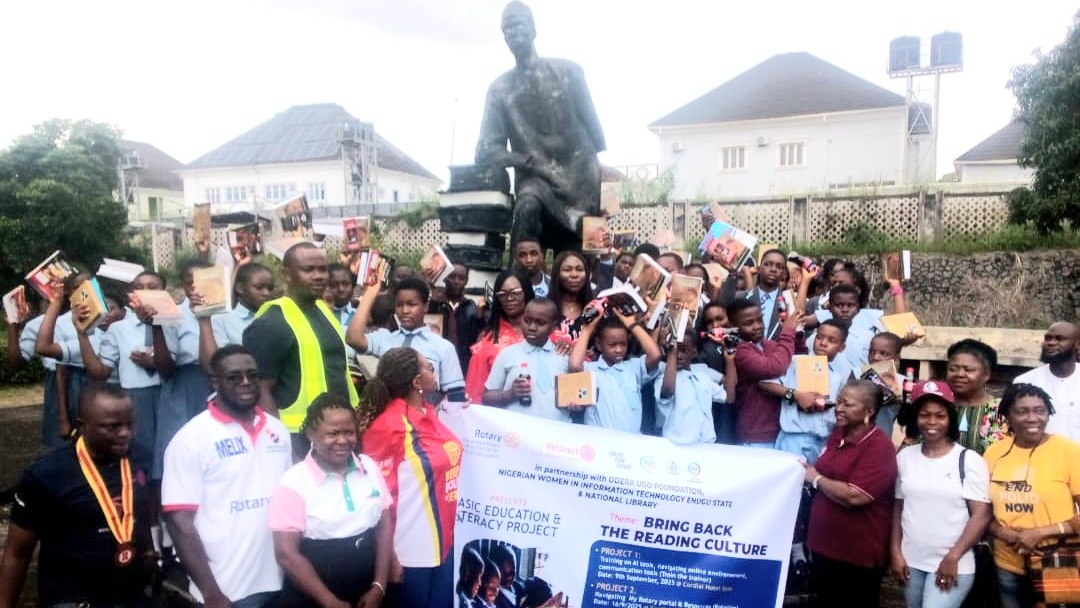

News
South Korea’s Rice Output to Decline in 2025 Amid Shrinking Farmland
South Korea’s rice production is projected to fall by 0.3 percent in 2025, with the Ministry of Data and Statistics citing shrinking farmland as the main factor. The statistical office warns that the steady decline in rice paddies, now at their lowest since 1965, could pose long-term food security challenges despite a short-term surplus.
South Korea’s rice production is projected to experience a slight decline in 2025, continuing a downward trend for the fourth consecutive year. “Rice output is expected to fall by 0.3 percent this year compared to 2024,” the Ministry of Data and Statistics said in a report released on Thursday.
According to the ministry, South Korea is set to produce an estimated 3,574,000 tons of rice in 2025. “This compares with 3,585,000 tons harvested the previous year,” the ministry explained, noting that rice remains a staple food for millions of South Koreans and a key part of national food security.
The statistical office attributed the decline to a drop in farmland. “The size of rice paddies across the country declined by 2.9 percent in 2025 to 678,000 hectares,” it said. “This marks the lowest level since relevant data began to be compiled in 1965.”
Officials further highlighted structural challenges behind the reduction. “Urban expansion, climate-related pressures, and shifting land-use priorities continue to impact rice cultivation,” the report stated. “Unless addressed, these factors could place greater strain on domestic food supply in the future.”
The office also noted that consumption patterns are shifting. “Rice consumption in South Korea has been on the decline for decades due to changing eating habits,” it said. “A growing preference for alternatives such as bread and noodles has lessened dependence on rice as the primary staple.”
Despite the decline in output, the Ministry assured that supply will remain stable for now. “This year’s rice harvest is expected to exceed demand by about 165,000 tons,” it reported, pointing to household consumption, food processing, and government rice reserves.
Still, the ministry cautioned that the long-term trend remains concerning. “The continued fall in rice paddies and production poses a serious challenge,” it warned. “Policymakers must invest in sustainable farming, support young farmers, and adopt agricultural technology to safeguard the country’s staple grain for the future.” GMTNewsng
News
Nigeria Faces Rising Lassa Fever Fatalities with 166 Deaths Across 21 States – NCDC
The Nigeria Centre for Disease Control and Prevention (NCDC) has confirmed 166 deaths from Lassa fever between January and September 2025. With a fatality rate of 18.5 percent, higher than last year’s figure, the agency warns that late presentation, poor health-seeking behaviour, and weak community awareness continue to fuel the spread of the deadly disease.

Abuja, October 2, 2025 – The Nigeria Centre for Disease Control and Prevention (NCDC) has announced that 166 Nigerians lost their lives to Lassa fever between January and September 2025, with the fatality rate now higher than what was recorded in 2024.
The public health agency disclosed the figures in its latest situation report published on its official website, covering Epidemiological Week 37, from September 8 to 14. It explained that the current situation reflects a worrying trend despite ongoing national response efforts.
According to the NCDC, “a total of 895 confirmed cases have been recorded across 21 states and 106 local government areas in 2025,” representing a widespread presence of the virus in multiple parts of the country.
The centre said the case fatality rate (CFR) has climbed to 18.5 percent, surpassing the 16.9 percent reported during the same period in 2024. It emphasized that although suspected and confirmed cases are lower this year, more patients are dying due to “late presentation and poor health-seeking behaviour, often linked to the high cost of treatment.”
Highlighting the geographical burden of the outbreak, the NCDC pointed out that Ondo, Bauchi, Edo, Taraba, and Ebonyi states continue to account for 90 percent of all confirmed cases, with Ondo State alone responsible for a third of total infections nationwide.
In its latest update, the agency confirmed that no new healthcare worker was infected during the reporting week. However, it warned that poor environmental sanitation, weak community awareness, and delayed treatment remain major drivers of the outbreak’s persistence and severity.
The centre explained that Lassa fever is “an acute viral haemorrhagic illness caused by the Lassa virus,” transmitted to humans primarily through contact with food or household items contaminated by rodents, particularly the multi-mammate rat. It also noted that human-to-human transmission is possible, especially in hospitals without adequate infection prevention measures.
NCDC officials outlined that symptoms often include fever, headache, sore throat, chest pain, vomiting, and diarrhoea, while severe cases may present with unexplained bleeding. The agency added that the disease is endemic in parts of West Africa, with Nigeria bearing the heaviest burden in the region.
To strengthen control measures, the agency revealed it had deployed 10 rapid response teams to high-burden states, rolled out new infection prevention and control (IPC) training modules, and supported clinical management fellowship programmes in collaboration with both local and international partners.
The NCDC further urged states to intensify community engagement and preventive campaigns, while reminding healthcare workers to “maintain a high index of suspicion and initiate early treatment once symptoms are identified,” stressing that timely response remains the best strategy to reduce Lassa fever deaths in Nigeria. GMTNewsng
News
Igboeze South Stakeholders Pass Vote of Confidence on Mbah, Ukwueze

Stakeholders in the Igboeze South local government area of Enugu State have passed a vote of confidence on Gov. Peter Mbah and the Council Chairman, Mr Ferdinand Ukwueze.
This is contained in a communique signed by HRM Okechukwu Agbaji, the Agbaji of Unadu Ancient Kingdom, and others at the end of their meeting on Sunday at Ibagwa-Aka.
The stakeholders noted that their decision followed a thorough assessment of the governor’s achievements within his two years in office.
The leaders listed the achievements to include the construction of 260 smart schools and 260 type 2 hospitals across 260 political wards and the rehabilitation of primary healthcare centres.
Others are the construction of Opi–Ekwegbe–Ugwogo Nike–Abakpa dual carriageway, the Nsukka bus terminal, and the rollout of Compressed Natural Gas-powered buses for safer and more affordable travel.
They also acknowledged the improved air connectivity through the revitalised Enugu airport.
“In this spirit, traditional rulers and presidents general of town unions in Igboeze South, led by Agbaji, have openly declared their support for Gov. Peter Mbah.”
“With key projects ongoing across Igboeze South Council Area two years into the administration of Mbah, we have unanimously passed a vote of confidence on the governor.
“We commended his innovative and transformative strides across Enugu State,” it said.
The leaders further expressed their appreciation for the efforts of the Local Government Chairman, Ukwuweze, for aligning with the governor’s vision.
They highlighted his achievements to include reconstruction of the council secretariat, construction of rural roads, improved security, and youth empowerment among others.
“The collective voice of the traditional institution in Igboeze South has sent a strong message of solidarity and support for the current administration.” the communique added.
They equally offered prayers for sustained progress and urged continued support for Mbah’s socio-economic agenda.
News
Rotary Club Urges Nigerian Governments to Revive Reading Culture in Schools

Enugu, Oct. 1, 2025 – The Rotary Club of New Haven, Enugu, has called on governments at all levels to integrate reading into school curricula as part of efforts to revive Nigeria’s dwindling reading culture among students.
Speaking at the club’s Basic Education and Literacy Project themed “Bring Back the Reading Culture” in Enugu, the President of the Rotary Club, Ms. Adaeze Nwokolo, lamented the poor reading habits among students and urged schools to promote the use of physical textbooks for better concentration, mental alertness, and personal development.
“Reading hard copies removes distractions from online platforms. We must reintroduce reading into our curriculum and encourage the use of physical books,” Nwokolo said.
The event, organised in partnership with the Rotary Club of City Center, Rotary Club of City Layout, Rotaract Club of Newhaven, Odera Ugo Foundation, Nigerian Women in Information Technology (Enugu State), and the National Library of Nigeria (NLN), featured several schools, including Hillview Primary School, Royal Orchard School, The Lord Shepherd School, and Lady Ibiam Girls’ Secondary School.
As part of the project, Rotary donated textbooks, exercise books, and other learning materials to students and the library to boost access to educational resources. Nwokolo explained that the initiative aligns with Rotary International’s global focus on basic education and literacy, particularly in connection with the 2025 International Literacy Day.
The Head of NLN, Enugu Branch, Mrs. Onyekachi Essien, commended Rotary’s intervention, stressing that access to books was vital in reviving the reading culture. “I am happy the club donated books. Many children now have books of their own, which will inspire them to read more,” Essien said.
She urged Nigerians to cultivate reading habits, warning that neglecting reading affects brain function. “When you stop reading, your brain cells begin to die,” she cautioned, adding that reading improves vocabulary, broadens knowledge, and can even help with insomnia.
Students also expressed gratitude, with Kamsi Nnaji, one of the beneficiaries, noting that the donated books would greatly enhance his studies and learning experience. GMTNewsng
-

 News4 years ago
News4 years agoEnugu Community: Bloodbath imminent as traditional ruler plans forceful take over of ancestral land
-

 Features4 years ago
Features4 years ago65 Hearty Cheers To Prof. Bart Nnaji, Aka Ji Oku, Nigeria’s Former Minister Of Power
-

 News4 years ago
News4 years ago2023: Support one of our sons to be governor of Enugu State -Nkanu East leaders plead with other areas
-

 Politics4 years ago
Politics4 years ago2023: Enugu State Governorship slot should go to Nkanu East ~Jim Nwobodo
-

 Opinion4 years ago
Opinion4 years agoBIAFRA, KANU AND NIGERIA
-

 News4 years ago
News4 years agoUgwuanyi an epitome of peace in Enugu State ~Owo Community
-

 News4 years ago
News4 years agoHow Interpol intercepted IPoB leader in Europe
-

 Politics4 years ago
Politics4 years agoEnugu: Nkanu East Leaders’ Forum Kicks Off Consultations For 2023 Governorship Slot








